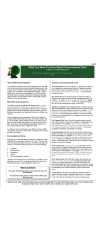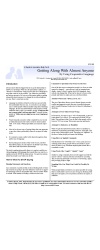Nailing Down The Meaning of Values – Personal AND Corporate (Part 1)
If personal and corporate values are to have any usefulness, they have to be used to make decisions and guide behavior.
Most of us have worked in organizations, or have known people who espouse a set of values, then promptly turn around and act in ways that are the exact opposite, causing E. Schein to talk about ESPOUSED VALUES Vs. values in action (ENACTED VALUES).
Espoused values are those that the person or organization professes, or “talks” about as important, while enacted values are the values that are actually operative, based on observing decision-making and behavior.
Why Espoused Values Are Rarely The Same As Enacted Values
Because of the nature of human beings, and our limited self-awareness, or understanding of WHY we do things, it’s unlikely that anyone or any organization will behave in ways that are completely congruent — that is, their enacted and espoused values (and beliefs) are identical.
This causes huge problems internally, which we’ll leave for another discussion, but apart from the vagaries of humans, with which we are stuck, there’s another reason for the lack of consistency.
Fuzzy Meanings of Values and Poor Communication of Meaning
Typically we talk about personal values in a kind of mental vacuum, as if we live in an ideal and rational world, and where we believe we, ourselves, are rational and consistent. But neither is true.
We have our “talk” and our “walk”, and circumstances often dictate where we end up walking, despite the fact that we may still espouse the same values and beliefs.
Also organizations and individuals almost NEVER go through a process that makes clear what their espoused values mean in the real world, and that is the critical link between our values and behavior.
What results is a kind of schizoid situation that often breeds cynicism in organizations, as employees see the company violating their “core values” on a daily basis.
The problem, though, is not that the values or wrong, but that the values have not been clarified so they can turn into guidance for walking the talk.
What does honesty mean? What about respect? Both these are often mentioned as part of value statements for organizations, or as core elements in someone’s personal philosophy. But by themselves they mean nothing.
Testing The Bounds Of Values and Beliefs
The values and beliefs of your organization are worthless unless they guide behavior. Likewise for you personally. They must be understood in terms of the behaviors that are consistent with the values, and the decisions-made.
Otherwise they are worse than useless as they engender cynicism.
In turn, the meaning of those values needs to be clear, again in terms of behavior and decision making to everyone expected to abide by those values.
There is only one way to accomplish these things. Use a technique that is both incredibly simple, and very difficult to do properly – The “Ends Against The Middle Technique”.
Continue to Part II below






